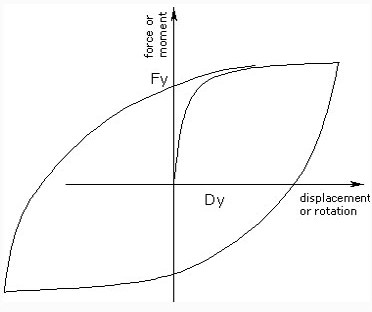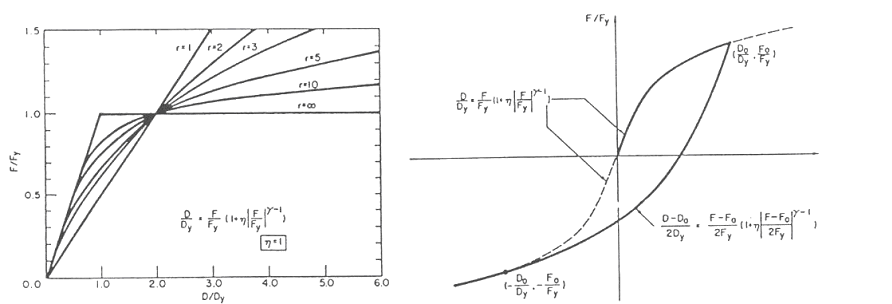Ramberg-Osgood curve - Ramberg_Osgood
This is the Ramberg-Osgood hysteresis loop [Ramberg and Osgood, 1943], as described in the work of Kaldjian [1967]. It has been initially programmed by Otani [1981] and requires four parameters to be defined in order to fully characterise its behaviour:
Yield strength (Fy)
The default value is 500
Yield displacement (Dy)
The default value is 0.0025
Ramberg-Osgood Parameter (![]() )
)
The default value is 1.5
Convergence limit for the Newton-Raphson procedure (![]() )
)
The default value is 0.001

Notes
- The loading curve is defined by:

- The curve passes at (Fy, (1+Dy)) for any value of
 , which controls the shape of the primary curve. As shown below, the loading curve may vary from a linear elastic line for
, which controls the shape of the primary curve. As shown below, the loading curve may vary from a linear elastic line for  = 1.0, to an elasto-plastic bilinear segment, for
= 1.0, to an elasto-plastic bilinear segment, for  = infinity.
= infinity.

- The unloading curve from the maximum point (Do, Fo) follows the equation:

- The force is computed by an iterative procedure using the Newton–Raphson method.
- As pointed out by Otani [1981] this hysteretic model dissipates energy even if the ductility factor is less than one. The dissipated energy is sensitive to
 , increasing with the increasing of this parameter.
, increasing with the increasing of this parameter.